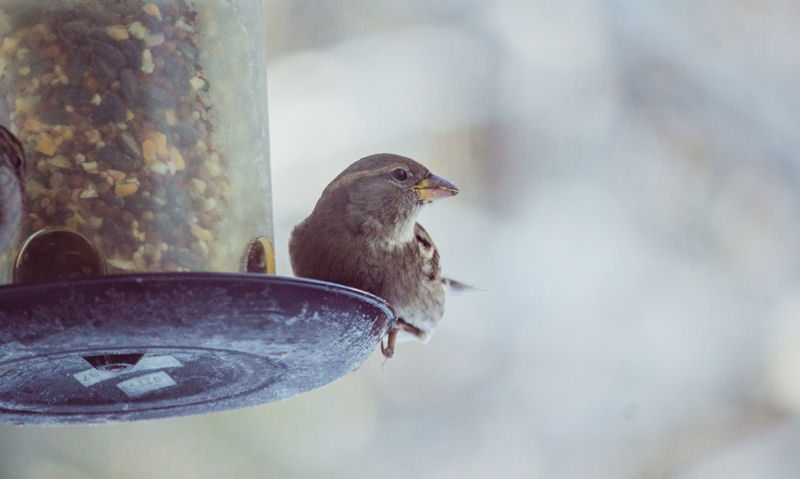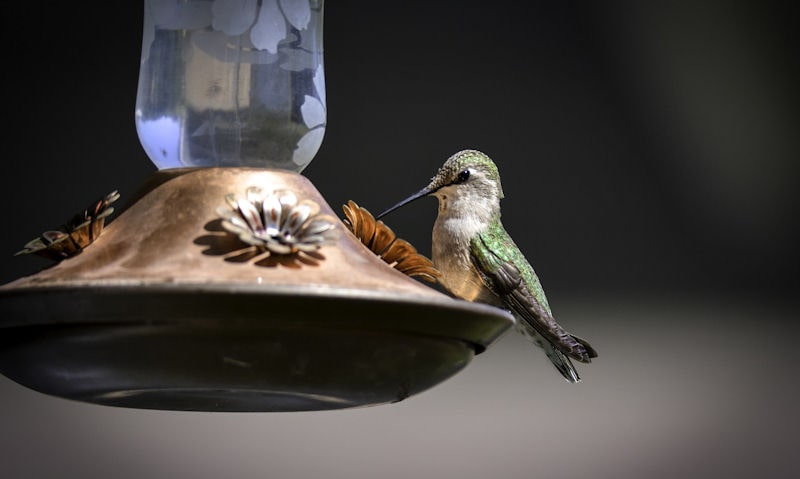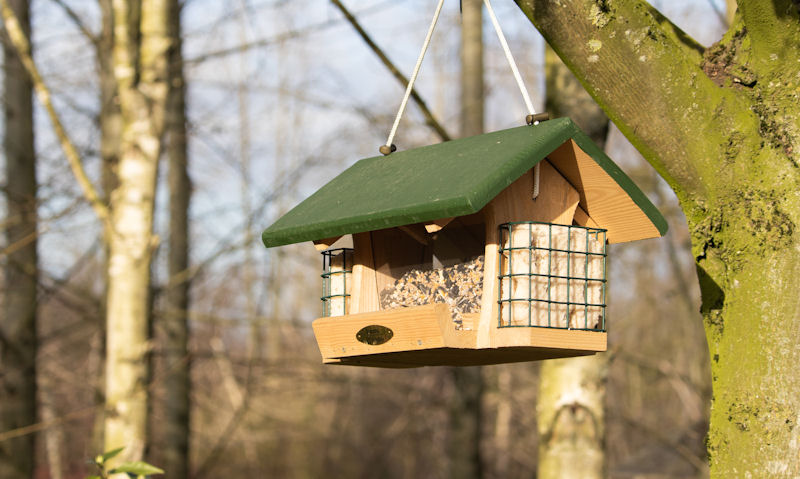Are bird feeders bad
While reasons not to use a bird feeder are justifiable, don't let the negatives outdo the positives, as there's plenty of reasons to use a feeder if you are willing to commit.
Bird feeders are bad if they are not cleaned two to three times weekly, as this would kill off any bacteria present while preventing germs spreading. Maintenance comes with changing out bird food twice weekly, but more so in a summer drought, or twice a day when birds eat more in harsh winter months.
Remember, to use new bird feeders is an exciting time on your part, so don't allow a few negatives to put you down.
Birds in our backyards benefit hugely with our intervention, as you'd be responsible for feeding birds in times of need, and so to as they become dependent on us all.
Where feeders suffer most is lack of maintenance on your part, thus the feeder is soon covered in muck, while the bird food is allowed to go rotten inside. Best solution to that is throwing it away, but it is common for anyone to not bother.
Birds can continue to feed on nuts, seeds or suet once its gone bad, so they get ill.
And herein lies the biggest concern with the use of bird feeders, people neglecting their feeder setup due to lack of interest - and so turns to something more sinister without you ever realizing it.
Feeders depend hugely on you to kill of germs and bacteria, to do that you must clean it two or three times a week, along with changing out before its used by date, bird food.
As long a the bird feeders remain in brand new condition, its only natural for people to be more enthusiastic about feeding birds.
Whereas a poorly kept bird feeder can see people begin to loose interest in due course.
Make no mistake, bird feeders play an important role when its comes to keeping backyard birds fed, so feeders can only be a good idea if you continue to be interested.
Feeders can be bad
Yep, for sure a bird feeder can be a bad thing to have in your backyard, but not by its own devices, but more so the responsibility lies on you.
Feeders can be bad for many reasons, above all else it is you or the person responsible for the wild bird feeder setup in your yard that would allow any interest in it originally, to fizzle off - resulting in a poorly maintained bird feeder.
Most important thing about owning and maintaining one or a number of bird feeders is soon loosing interest, and it will happen if you can't attract birds to your feeders soon enough.
So there goes the excitement of the owning and taking care of feeders, as you allow them all to rot while hanging up in the yard.
Food within the feeders rot for sure, but its actually the feeders that begin to deteriorate more - by losing color as it fades with no maintenance work.
That applies to the clear plastic tube feeders that loose the sheen, with a mist forming on the inside of the tubes.
Feeders can be bad for sure, but remember the only reason for this can only be on you.
Never allow to go bad
Feeders are bad if allowed to deteriorate over the course of the coming months, but that can be avoided if you continue to replenish with new, fresh food.
And in many respects its vital you continue to refill a water dish or bird bath setup nearby.
Never allow bird feeders to go bad in a way that is not reversible. Who really wants to use an unsightly bird feeder setup with a once colorful feeder now caked in muck - yet the bird food has seriously rotted in the core of the feeder.
Solution to that is buying and maintaining a new set of feeders, because even a strong vinegar cleaning agent won't do much to repair the damage.
What is more important above all else when being responsible for looking after any type of bird feeder - is to not neglect it as it would soon turn to an eye sore.
Not only must you clean the feeders to prevent any fading or prevent stubborn residue sticking to the outer feeder, but the inside of the feeders must be cleaned out of course, while changing out food as often as you can to prevent it going rotten.
Follow strict cleaning routine
Bad as feeders can be if neglected in due course, but all these issues and more can be avoided if only committing to a strict cleaning routine.
What that involves on your part is following a twice or three time weekly clean up of your bird feeders, come rain or shine.
Its can be time consuming but understand it can take less than 10 minutes if you're well prepared.
What you need to focus on is only soaking the feeders, if its to clean a suet feeder or a seed tube - is with a long soak in hot water using dish soap.
In theory its a quick and easy cleaning job as the residue would now wash off with ease.
Clean your bird feeders twice a week, but for the third cleaning day you can reserve this for killing off any bacteria present.
It would involve cleaning feeders with a safe for birds part water vinegar solution that is designed to remove germs that remain within or on the exterior of the feeder.
Follow a strict routine of cleaning your bird feeders, or your more sensitive hummingbird feeders twice or three times a week... as the routine gets easier in time.
Change old food regularly
To clean the bird feeder exterior can prevent it appearing to be in bad shape on the outside, so can be avoided with a regular clean.
Let's not forget though in-between these two to three time weekly cleaning sessions, the bird food has to be changed out along with it.
More so under extreme heat or more often if backyard birds eat more in winter months.
Where bird feeders can go bad is how the old bird food begins to rot if not replenished regularly, thus leading to the tube with a white glaze over it - or rotten peanuts or rancid suet melting into the feeder.
Rotten food in a bird feeder is not good for birds, not good at all. If birds were to continue to feed off it, this would result in them becoming ill, which would lead to a painful death.
Its vital you protect your birds by offering them only fresh, clean food; or else your feeders become a breeding ground of bacteria, where birds fall ill without you knowing about it.
Feeders suffer with lack of cleaning and maintenance, but what comes next is making sure to switch out food regularly, with only two or three days use at a time.
Summarize
Feeders can be a bad thing but only if you allow it to get out of control. You see feeders can be a breeding ground for bacteria, in which can be avoided on your part.
To lose interest initially is not a surprise if wild birds fail to turn up to a new bird feeder setup, so to clean feeders with a regular change out of old food soon dwindles.
Now things get a little more serious because while its possible birds can continue to feed off these two, three or even month old feeder food, little do they know the food is littered with bacteria.
Soon then these birds will become ill and will eventually die a slow, painful death.
Bird feeders are bad indeed if they are not cleaned out regularly to prevent germs spreading on the feeder exterior; more importantly if the food within the feeders are not cleaned out before they germinate.
Never allow bird feeders to go bad with only a thorough cleaning with soap dish twice weekly needed - with the occasional bacteria beating part vinegar cleaning solution.
Change bird food, including peanuts, seeds and suet of any kind twice or three times a week all your round. More often in hot months is a requirement, or change food twice a day if the food is consumed more in winter months, which it often is.


